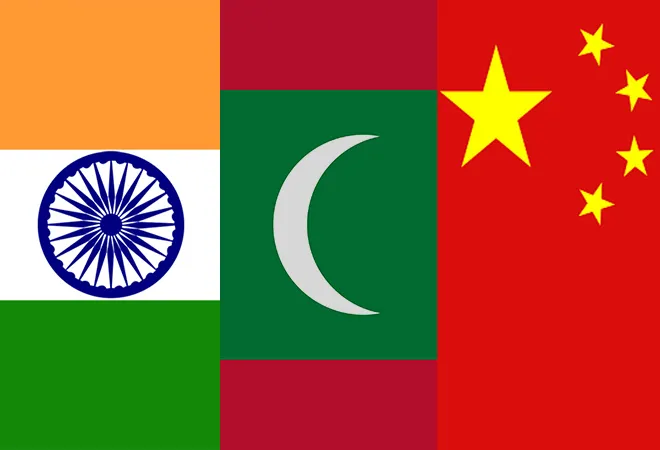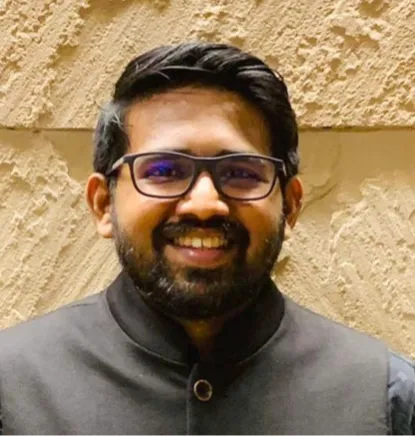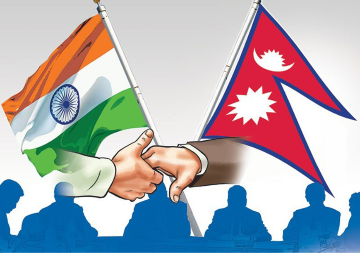
On the 9th of February, the Maldivian Democratic Party (MDP)—the ruling party of the Maldives—agreed to introduce a bill that criminalises the country’s diplomatic disruptions. The latest development comes in light of the government’s priority to maintain its ‘India First’ policy and limit the opposition’s ‘India Out’ campaign. This bill, however, leaves the state at the mercy of the ruling government’s foreign policy choices and can produce some unanticipated challenges if passed in its present form.
A blurring line
Ever since the Maldives embraced democracy in 2008, its politicians and parties have contested and competed by propping up nationalist sentiments and politicising the country’s foreign policy and development projects. This has increasingly blurred the lines between the country’s domestic and international politics.
Nasheed, the first democratic President, continued Gayoom’s policy of maintaining closer ties with India and seeking its aid and security. Subsequently, India delivered its first helicopter to the country in 2010 for patrolling and humanitarian purposes. Nasheed also attempted to privatise the economy by attracting huge investments from India. The GMR’s US$ 500 million airport project was one such notable example.
India delivered its first helicopter to the country in 2010 for patrolling and humanitarian purposes.
His opposition, however, accused him of selling the country to foreign states and corporations. They even levelled corruption charges against the Indian High Commissioner. This surfaced anti-Indian sentiments in the island state for the first time. These allegations against the government combined with other domestic factors contributed to mass protests, Nasheed’s resignation, and, thereby, unilateral cancellation of the GMR project. India’s brief sheltering of Nasheed further strengthened the opposition’s rhetoric and allegations against the latter.
In 2013, Yameen won the presidential elections. During this time, India indicated its desire to continue acting as a net-security provider and gifted a second helicopter to the country. However, Yameen embraced closer relations with China, which influenced his economic policies and domestic politics too. His government signed a Free Trade Agreement (FTA) with China and borrowed.US $1.5 - 3 billion from the latter. Chinese firms were also invited to develop the country’s infrastructure, often with opaque agreements and contracts. Several islands and infrastructure projects were handed to Chinese companies; the Feydhoo Finolhu islands were leased to a Chinese firm for 50 years.
Yameen embraced closer relations with China, which influenced his economic policies and domestic politics too.
By 2018, as Chinese projects and involvement deepened in the island state, Yameen attempted to propagate nationalist sentiments at the cost of its traditional ally—India. His government cited issues of sovereignty and refused to extend visas to the Indian helicopter pilots and also asked India to withdraw its choppers and servicemen. Thus, sowing the seeds for what is today’s ‘India Out’ protests.
Emboldened by the Chinese support, he cracked down on protestors who criticised him for his corruption and bonhomie with China. He also disregarded pleas from the West and India and continued to suppress the country’s democracy and political opposition, and imposed an emergency.
India First vs India Out
Fearing the Chinese debt trap, Ibrahim Solih—the next president—promoted his ‘India First’ policy in 2018. He has prioritised ties with India and has mitigated the latter’s security apprehensions by reconsidering the Chinese FTA, avoiding unsustainable Chinese borrowing, acknowledging India’s role as a net security provider, and rejecting China’s ocean observatory proposal. Nonetheless, he has continued to engage with China to reap more sustainable deals and projects.
In return, India has also offered some financial assistance to help repay the Chinese debts. It has increased its budgetary grants for the Maldives to 360 crores in 2022; this was a mere 160 crores in 2020. In 2021, India invested in over 45 socio-economic development projects. It has also agreed to develop, maintain, and support a coast guard harbour by signing the Uthuru Thilafalhu (UTF) naval harbour agreement.
He and his allies allege that the government is violating the country’s sovereignty and allowing Indian troops to be unconditionally stationed in the Maldives vis-à-vis the UTF agreement.
However, as the Maldives head to elections in 2023, the opposition led by Yameen has begun to politicise these socio-economic and net-security projects with their ‘India Out’ campaign. He and his allies allege that the government is violating the country’s sovereignty and allowing Indian troops to be unconditionally stationed in the Maldives vis-à-vis the UTF agreement. They have even urged India to withdraw its military personnel and helicopters, and terminate all military arrangements with their country. Therefore, politicising India’s role as a net security provider and harassing Indian diplomats and teachers.
This campaign is in stark contrast with the Maldivian government’s ‘India First’ policy and threatens Indian investments, citizens, and interests in the country. The government and its allies have condemned the opposition considering India’s sensitivities and interests. In addition, the ruling party has also proposed a new bill in the parliament.
The new bill and its implications
This bill intends to criminalise protests or actions that affect the Maldives’ diplomatic relations with other friendly countries. Its violation could lead to imprisonment or a house arrest of 6-12 months, and even a fine of 20,000 Maldivian Rufiyaa. However, the bill, if passed in its current form, might inadvertently pose new challenges for India as well as the Maldives.
First, the bill violates the freedom of expression. The opposition has often accused the government of being non-transparent and non-democratic, to which the UTF agreement is used as a mere case of substantiation. The bill thus makes the government more vulnerable to criticism from its opposition and its own electorate. It is also very likely that this anger and criticism can act as a fertile ground for the opposition to propagate and seek legitimacy for their anti-India campaign. Evidently, sections of local journalists and media houses have already begun to blame India for this bill.
Similarly, as the country heads to elections in 2023, Yameen is sustaining his campaign by accusing the government of compromising the Maldives’ sovereignty and politicising India’s aid and projects. These tactics have had limited success in recent weeks, which could potentially reverse with the passing of this bill. This might even lead to more politicisation and criticism at a time when India is allocating more grants for the country.
The opposition has often accused the government of being non-transparent and non-democratic, to which the UTF agreement is used as a mere case of substantiation.
Finally, the bill also curbs any kind of dissent or legitimate criticism. This might have severe repercussions if and when the Maldives witnesses another pro-China policy or government. China’s projects and lending in the Maldives have historically been expensive and opaque in nature. For instance, China’s largest connectivity project—the Sinamale bridge is 2.1 kilometres long and costs US $200 million. On the other hand, India’s largest project – the Greater Male connectivity Project costs only US $500 million despite being more than triple the size (6.74 kilometre) of the Sinamale bridge. But as the bill limits criticism and dissent, it leaves the state even more vulnerable to the Chinese debt traps.
The new bill reflects the island state’s sincere efforts to maintain its ‘India First’ policy and respect the latter’s security concerns. But, as the country’s dichotomy between domestic and international politics continues to blur, the bill leaves the state at the mercy of the ruling government and its foreign policy choices. This will likely produce more unanticipated challenges for India and the Maldives.
The views expressed above belong to the author(s). ORF research and analyses now available on Telegram! Click here to access our curated content — blogs, longforms and interviews.




 PREV
PREV


